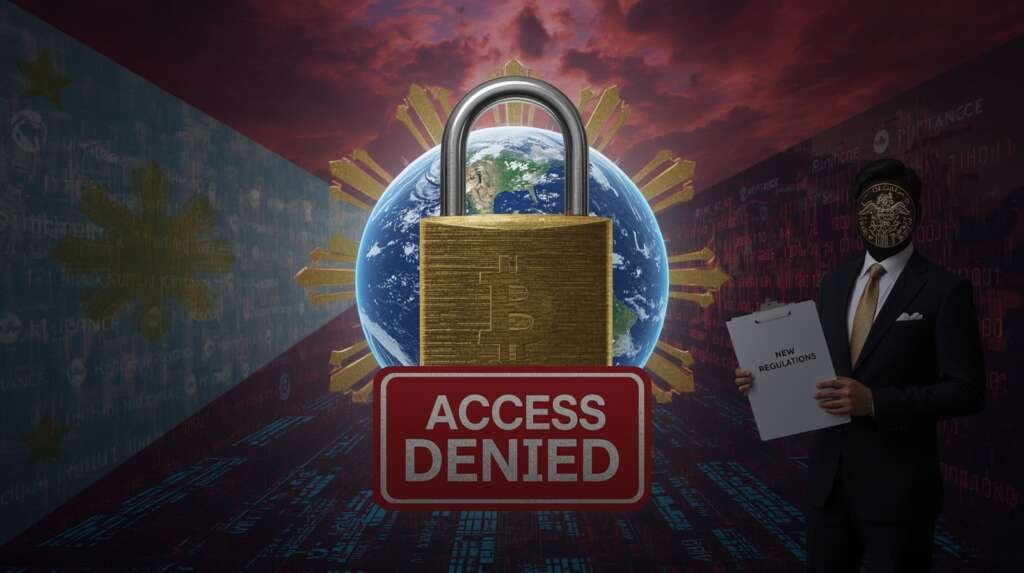In a bold move that signals a strong regulatory environment, the Philippine Securities and Exchange Commission (SEC) has taken action to cut off domestic users’ access to 10 overseas cryptocurrency exchanges. The exchanges affected include popular crypto platforms, such as OKX, Bybit, and KuCoin.
The Philippine SEC revealed that these platforms have been operating illegally in the country without licenses or registration, and would become inaccessible, henceforth. This move is part of a sweeping crackdown that reflects the country’s non-nonsense approach to flagging offshore crypto exchanges and protecting its users.
Philippine SEC Flags Offshore VASPs Following its New Rules
The country’s regulatory watchdog issued an advisory on Monday, warning foreign crypto platforms offering services to its residents without registration are violating its laws. In furtherance of the advisory, the country’s SEC made the sweeping move to block access to these platforms.
Philippine users woke up on Wednesday morning to see that they were unable to access the websites of several exchanges, including OKX, MEXC, Bybit, KuCoin, Bitget, etc. These sites were no longer accessible through the country’s largest internet service provider, PLDT. The regulatory agency stated that the move aims to enforce new regulations that took effect in June, requiring all crypto service providers to complete registration and comply with regulatory requirements.
The latest sweeping crackdown builds on previous actions against platforms, such as Binance. SEC officials confirm that more entities may be added to the list, sparking reactions among local users.
Why the Philippine SEC is Taking Such Actions
The SEC’s sweeping action reflects growing concerns over the unregulated nature of some foreign crypto platforms offering services to Filipinos without local registrations. These platforms are viewed as a threat to consumer protection, AML rules, and the country’s financial stability. The top regulator has consistently stressed that any exchange offering its services in the Philippines must comply with the country’s SEC and local registration laws or face the consequences.
This move aligns with global trends to localize oversight and hold defaulting platforms accountable within laws that apply to specific jurisdictions. The restrictions could have wide-reaching effects on Filipinos, especially those who still have assets tied to the affected platforms. Luis Buenaventura, Head of Finance at GCash, stated that some users are becoming increasingly frustrated due to the enforcement, accusing the SEC of having “monopolistic or protectionist agendas.”
However, he admits that the restrictions could benefit local platforms. He believes that new users will pivot to these compliant platforms, knowing that they can trust them. Remember, new users are just getting started on their crypto journeys and would want to use a platform that they believe is trustworthy. These local platforms would see increased trading activities, which contribute to the Philippines’ economy.
What’s Next for the SEC
The SEC’s sweeping crackdown marks a turning point for crypto regulation, which has long been open to digital assets. The country welcomed Blockchain innovation, despite having one of the smallest populations in Asia. However, with surging crypto adoption comes risks of illegal activities. As a result, the SEC reinforced regulations to protect the ecosystem and its users.
Crypto exchanges wishing to continue offering crypto services in the Philippines must register with the SEC and adhere to full compliance laws as stipulated. The country sends a message – crypto service providers can expand their services to the Philippines, but not at the expense of regulations or investor protection. Meanwhile, DIQ experts anticipate that the Filipino government will release more comprehensive crypto regulations in the future, as the space continues to evolve.




